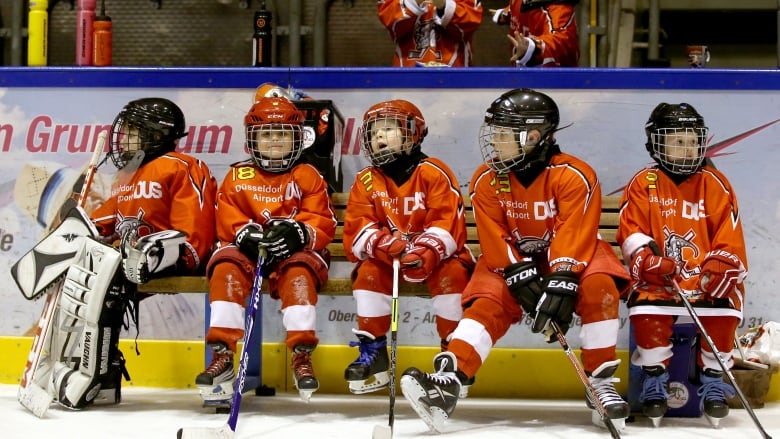Peewee bodychecking ban has reduced concussions, study finds
Shows a 64 per cent decline in concussions and a 50 per cent drop in overall injuries

Researchers at the University of Calgary say ban on body checking in peewee hockey has led to a dramatic decline in concussions.
Hockey Canada voted in 2013 to do away with the practice for 11- and 12-year-old players.
Kinesiology professor Carolyn Emery, who chairs the Sport Injury Prevention Research Centre at the university, says researchers followed players before and after the policy change.
They found there was a 64 per cent decline in concussions and a 50 per cent drop in overall injuries.
She says kids in the peewee age group are still able to learn skills that prepare them for body checking later on.
Emery and her colleagues will be presenting their research at a major International Olympic Committee injury-prevention conference in Monaco next week.
She said the drop since the policy amounted to 4,800 fewer concussions across Canada in a year.
"So that's a pretty huge public health impact," she said Friday.
Emery said while preventing injuries is important in all age groups, there was a reason to focus on peewee players.
"We see such a huge disparity in size of players in this age group," she said.
"And in terms of growth and development, these are developing kids with developing brains and they're trying to really learn many, many skills within the game of ice hockey."












_(720p).jpg)


 OFFICIAL HD MUSIC VIDEO.jpg)
.jpg)



























































































